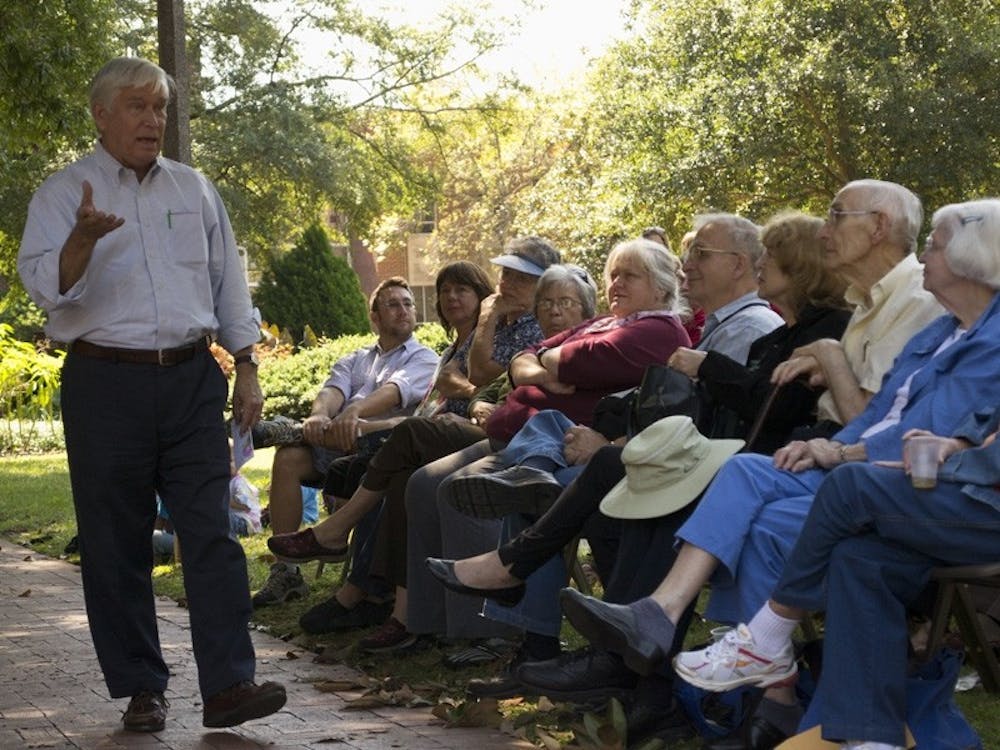Death, life, change and urgency were recurring themes in USC’s Naturalist-in-Residence Rudy Mancke’s annual fall lecture, “The Nature of Things,” delivered Tuesday afternoon on the Horseshoe.
Groups of young children joined community members of all ages on the lawn in front of the McKissick Museum to hear Mancke’s lecture on the changes that take place in the fall season, bringing with them picnic snacks and a curiosity about nature, though fall was just barely evident on the warm afternoon.
“My grandmother ... was convinced that in the state of South Carolina, there are only two seasons,” Mancke said. “There was the hot one, which she could not stand ... and then there was the cold one, which she could not stand ... She said, ‘I live for the edges.’
“This is the time of year when there’s an urgency in the natural world. I love the ‘edges’ (of the seasons).”
Mancke spoke on seasonal topics that included the colors of fall and the migration of some species.
While noting the turning leaves and emerging yellow hues in nature — “Isn’t yellow the color of fall?” he said — he paused to point out a bright yellow cloudless sulphur butterfly that flew by the audience, as if on cue.
“Things are changing; life is running out for a lot of species,” Mancke said. “There’s an urgency that’s going on here that’s really pretty amazing.”
He repeatedly talked about how all things fit in with the world and are connected to one another.
“Nature’s pretty neat, isn’t she? If something works in the natural world, it survives. If something doesn’t work, what happens? It gets recycled into something that does work,” Mancke said.
Recognized by the South Carolina Humanities Council earlier this month for his efforts promoting children’s literacy in the state, Mancke held the interest of the crowd’s young members.
“I think that curiosity that they’ve got is innate. Everyone’s curious about the world,” Mancke said after the lecture. “So seeing little ones and having them take part and having them give you a little folded up leaf with a seed in it as a gift, those are little treasures.”
Mancke delivers seasonal lectures throughout the year in addition to teaching the undergraduate course, “Natural History of South Carolina,” and the graduate course, “Seminar in Environmental Studies: Reinventing the Naturalist.”

